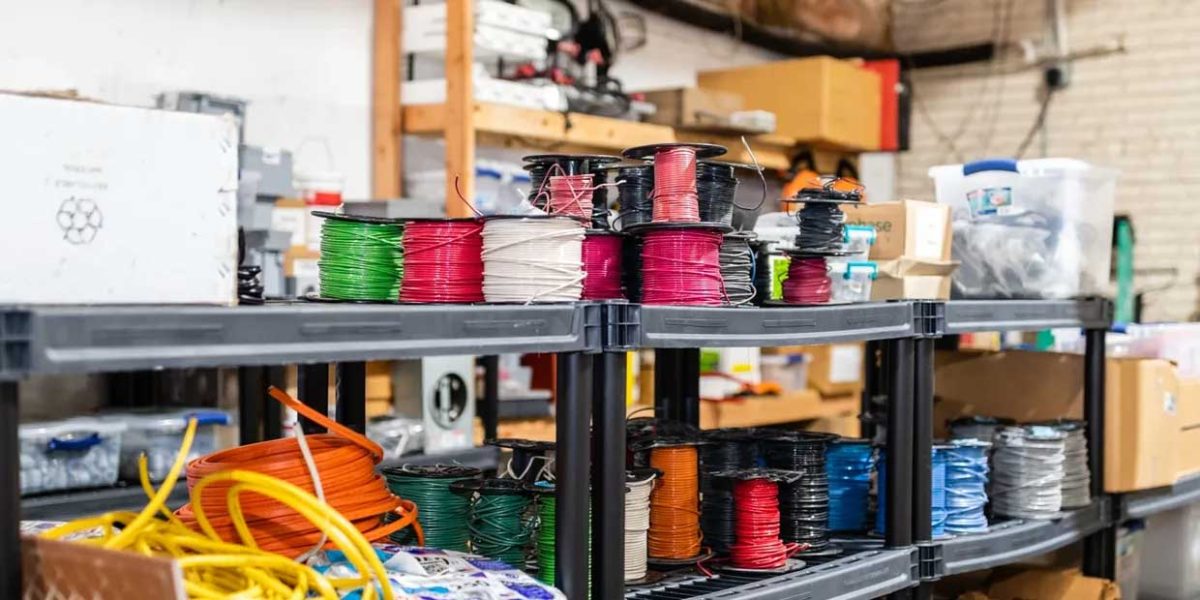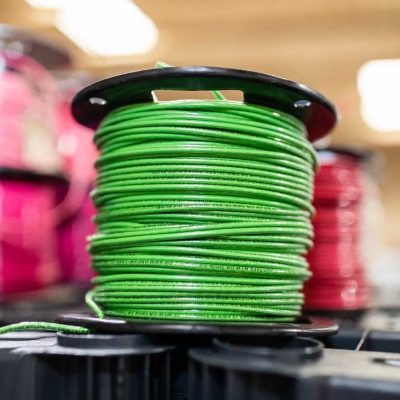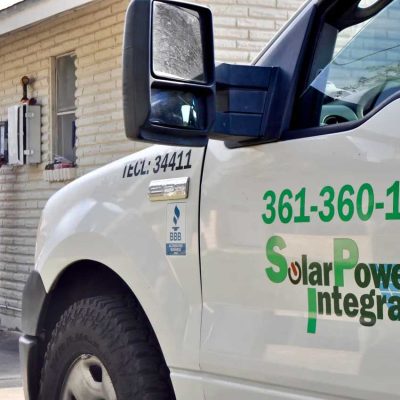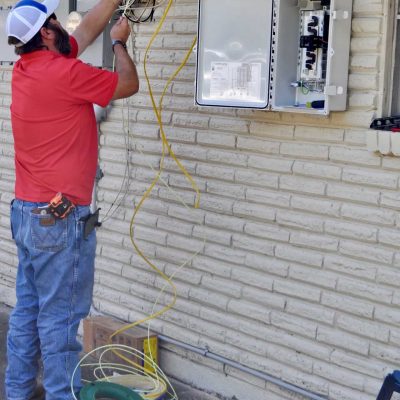No electrical project is too big or too small for our Licensed Master Electricians. We take care of all your residential, commercial, new construction, and even mobile home electrical service needs. Our team is able to install or replace any new or old electrical work on all buildings.

We can start any project, at any time. If you need an electrician from start to finish with certain projects, then we are the guys for you! We can also jump in anytime to help you out! Additionally, we will file for permits if need be.
- Electrical Repairs
- Electrical Trouble Shooting
- Electrical Panel Service Installations & Replacements
- Electrical Panel Upgrades
- New Construction Wiring
- Mobile Home Hook-Ups



The Benefits of Hiring a Licensed Electrician
When it comes to performing electrical repair in your home or office building, safety must be top priority (especially if you want the job done right). There may be all kinds of DIY tutorials and videos on the internet, but doing this type of work can be complicated and even dangerous. That’s where hiring a master electrician can make a significant difference.
Here are some of the benefits of hiring a licensed electrician:
• Expertise and Experience — When it comes to handling electrical tasks, this is one of the biggest advantages. Licensed electricians have to go through extensive training. So, they have an in-depth knowledge of electrical systems, codes, and regulations. They’re also prepared to handle any kind of electrical issue (from simple repairs to more complex installations). Their experience allows them to find and troubleshoot any problem in the most efficient possible manner, which can save you time and minimize risk.
• Guaranteed Safety — Electrical repair is intricate work, but it can also be dangerous. Working with any kind of electrical system without the right knowledge and equipment can cause accidents, injuries, and even death. Licensed electricians make safety their top priority. They also follow strict standards and protocols. They can find any potential hazards, implement important safety measures, and make sure the job is done correctly.
• Compliance with Legal Requirements — Electrical repair is governed by a set of codes and regulations, which can vary from one location to another. Hiring a licensed electrician will make sure all the work is done according to these legal requirements. This is especially important if you’re planning to rent your property sometime in the future, because non-compliance can lead to legal issues and problems during inspections.
• Cost Savings Over the Long Term — It may be tempting to save money by doing electrical repairs yourself or by hiring someone who hasn’t been licensed, but it often leads to higher costs over the long term. Any mistakes you make throughout the DIY process can damage your entire electrical system or some other part of your property, which can lead to more expensive repairs. By hiring a licensed electrician, you’re investing in quality workmanship that’s more likely to last longer (which will reduce the need for more frequent repairs and replacements). Licensed electricians also have insurance coverage, which will protect you from any financial liabilities if there are any accidents or damage.
• Efficiency and Timeliness — Electrical problems can cause a disruption in your daily routine, which can be an inconvenience. If you hire a licensed electrician, you can make sure the problem is repaired in an efficient manner and within a reasonable timeframe. Master electricians will have the right tools, equipment, and experience to take care of these electrical jobs efficiently. They can also identify the root cause of a particular problem and can give you an effective solution while also minimizing downtime.
If you’re looking for one of the best electricians in Corpus Christi, be sure to get in touch with Solar Power Integrator.
Electrical FAQ
Electricians can be called on to perform a number of repairs — from the replacement of switches and receptacles that have worn out to changing electrical panels and boxes. They can even be called on to do extensive electrical wiring. But before homeowners call a professional for electrical repair, they will see signs that something isn’t right. They will also have questions about what to do.
Here are some of the questions people ask about electrical repair:
Some of the common types of electrical repair include:
Outlet Replacements — Whether they’re cracked, hot to the touch, ungrounded, or have some other issue, there are times when electrical outlets need to be replaced. Not replacing them can cause a house fire, so it’s a problem that should be taken seriously.
Wiring Repairs — Electrical wiring can last for many decades, but it can still get some occasional damage. It can be dangerous when a problem reveals itself. It even has the potential of causing a house fire. So, you need to call an electrician as soon as your electrical wiring shows signs of damage.
Light Repairs — You can’t have a functioning home without proper lighting, and there are times when they need to be repaired. Problems can occur because of the wiring that connects them to the electrical system or because of the fixture itself. In fact, electricians repair lights on almost a daily basis.
Generator Repairs — If your home is more susceptible to frequent power outages, it can benefit from having a permanent backup generator. But like all other electrical devices, it can break down. It can be easily fixed by calling an electrician with generator experience.
Smoke Detector Repairs — Smoke detectors are directly connected to your electrical system, so they need to be properly wired if you want them to work. This wiring can get damaged over time, so it will sometimes need to be repaired by an electrician.
Washer and Dryer Cord Repairs — Washers and dryers are expensive appliances that you can’t just throw away when they run into a power cord problem, but you can replace them so they can work again. You might be able to do this on your own. But if you’re not able to, you can always call an electrician.
Circuit Breaker Repairs — If your circuit breaker trips every time you plug in an electrical appliance, it needs to be repaired. Electricians can change the wiring inside your home to make sure the circuits aren’t overloading, but they can also update your circuit breaker to make sure it can handle larger amounts of electricity.
At some point, you may hear some buzzing noises coming from your lights or outlets. It’s usually a sign that your wiring is broken or is starting to deteriorate, which is why you should contact an electrician as soon as you notice it.
The first thing you want to do is make sure there aren’t too many appliances plugged into a single circuit, because it can cause an overload. If it’s only one appliance, unplug it. You can then choose to replace it or call someone to repair it. You can also try connecting another appliance to the outlet that’s causing the problem. If it’s still showing signs of trouble, you should have it checked out by a professional.
When the electrical current passing through a fuse is greater than it can handle, it will burn a hole in the thin strip of metal. This will stop the flow of current. It means that you have blown a fuse, which needs to be replaced (not reset). When the electrical current exceeds the limit of the circuit breaker, the trip setting will open to stop the flow. When this happens, the breakers can be reset by flipping the handle on its face.
When you use an electrical appliance, the current flows from your service panel to the device. A grounded wire will give any unused electrical current a safe way to go back to the service panel, so there won’t be any danger if there’s a short circuit.
You might have seen electrical outlets with a “test” and “reset” button in the middle. This is called a Ground Fault Circuit Interrupter (GFCI), which automatically shuts off an electrical circuit when it detects an improper current flow. It’s also used to reduce the risk of electrical shock from outlets that are located in damp locations or areas near a countertop.
Circuit breakers will trip when you use too much power. The devices that need the most power are generally used to heat things up (such as microwaves, toasters, space heaters, and hair dryers). You can deal with this issue in two ways. You can only use one appliance at a time, or you can run a new circuit to the area that needs extra power. The second option will require the help of a licensed electrician, because you will need to run a new wire from the electrical panel to where you want to run the new power circuit.
Circuit breakers can also trip if there’s a problem with the wiring inside your home or the device itself. Unplug everything that’s connected to that circuit. If it stays in the “on” position, there’s a problem with the device. Otherwise, there could be a problem with the outlet or even the switch itself. If this is the case, you need to call a licensed electrician to fix the issue.
Circuit breakers can only handle a certain amount of power. If too much is being used, it will shut down (or “trip”). If you want to know how much power your breaker can handle, look at the number on the breaker inside the panel. This is the amount of amperage it can handle before it will trip. Anything that’s used to heat or cool (such as microwaves and toasters) uses a lot of power and can cause breakers to trip if they’re used simultaneously.
Air conditioners use a lot of power to start up (called a “rush current”). Most AC units have a nameplate or plaque on them that shows the maximum or minimum breaker size to operate. If the breaker keeps tripping, make sure the unit and wiring are in good condition. If they are, installing the maximum allowable breaker for the AC unit should take care of the problem.
A GFCI will usually trip because there’s an imbalance in the wiring. GFCI’s are required in areas that are near water (such as bathrooms and kitchens), because they’re designed to shut off if any amount of water is detected in the outlet (which makes them safer for use in these locations). Some other reasons that a GFCI will trip can include the following:
– An old motor or refrigerator.
– The GFCI itself is bad.
– There’s a problem with the circuit wiring.
Be sure to speak to a licensed electrician for more information.
GFCI’s are required in all outdoor outlets — not just for your safety but because of code requirements. Some exceptions may be made for older homes. A GFCI located inside the garage of an older property may also protect the bathroom (and in some cases, the outdoor outlets as well). But if this setup is in a newer home, it would be considered a code violation.
Circuit breakers are sized according to the wiring to which they’re attached. So if a smaller-sized wire is terminated on a breaker that’s too big, the wire can overheat and burn because the breaker won’t provide the right amount of protection that’s needed to minimize hazards. There are some exceptions to this rule, with the most common being a motor (such as an AC unit). Be sure to speak to a licensed electrician if you’re not sure.
\The breaker itself isn’t hard to install, but there are a number of safety considerations and code requirements that need to be followed. If any amount of metal is present within a five-foot radius, it needs to be bonded (or grounded) to the hot tub itself. There are also rules about where the disconnect needs to be. It’s a good idea to speak with a licensed electrician before you install a new Jacuzzi or move an existing one.
An Arc Fault Circuit Interrupter (AFCI) is there to detect arcing, which is often caused by a loose connection. If an AFCI breaker trips, you need to determine the cause and whether a hazard is present.
If you’re looking for a quality electrician in Corpus Christi to help you with any kind of installation or repair, be sure to get in touch with Solar Power Integrator.
